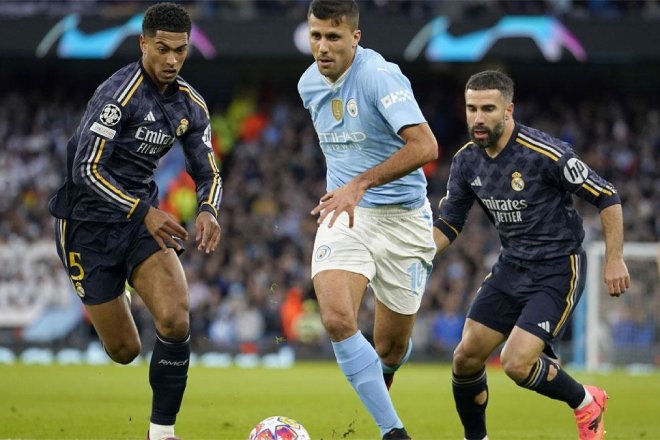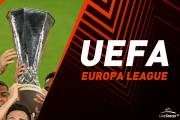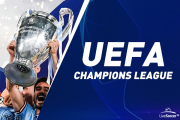Paris Saint-Germain vs. Manchester City. This intriguing Champions League quarter-final tie has not even kicked off, but once the pairing was announced in Friday's draw, it generated quite a bit of buzz on social media. Why? Not because both teams are meeting at this juncture for the very first time. Not because Manchester City are finally in the quarter-finals for the first time in their history. And not because PSG have finally managed to avoid Barcelona at this stage - although, should they beat the Citizens, a meeting with the Blaugrana is bound to happen at some point.
No, the upcoming match between PSG and Manchester City got a lot of folks talking because of the large coffers these two sides possess. Naturally, this did not go unnoticed by fans worldwide, many of whom were quick to dub this clash as "El Cashico" due to the massive wealth of the ambitious duo. If one finds that that nickname is not the most original or witty catchphrase ever, well, it certainly is not, but it definitely is not an inaccurate description, either.
Money, money, and more money...two of the richest sides in Europe collide
In any case, whether one chuckled or rolled their eyes at the moniker given to April's two-legged die, there is no disputing that it will be a battle between two of the most wealthy sides in European football, with lots of money flying around (no pun intended):
Graphical representation of PSG v Man City... pic.twitter.com/mSUzewpgpG
— Paddy Power (@paddypower) March 18, 2016
If you are not familiar the funny character Mr. Burns from the famous cartoon The Simpsons, well, either you are way too young or really must have unfortunately missed out on quite a lot of all things affiliated with popular culture. Anyway, in taking a look at both Manchester City and PSG, they are two clubs that have been around for decades, yet have largely been hovering in the background - or in the Sky Blues' case, the lower tier - up until recently.
Manchester City: From success to failure to back to England's elite
Although Manchester City have been around since 1894 (prior to then, they were known as St. Mark's West Gorton), the club's most successful period was in the late 1960's and early 1970's. During that time, the Sky Blues won silverware both on the domestic and continental stage, including a UEFA Cup Winners' Cup in the 1969/1970 campaign.
However, from the 1980's onward, it was a downward spiral for the club, who at one point were actually playing in English football's third tier during the 1998/1999 season. The ascent back to the Premier League was a long and painful one, and City struggled to break into the top four, let alone even finish in the upper half of the table. That is, until 2008, when the club were bought by the Abu Dhabi United Group - owned by Sheikh Mansour bin Zayed al-Nahyan and their fortunes began to change as rapidly as the money being pumped into the club.
Under Sheikh Mansour bin Zayed al-Nahyan, Manchester City have gone from has-beens to back among England's top sides in just eight seasons
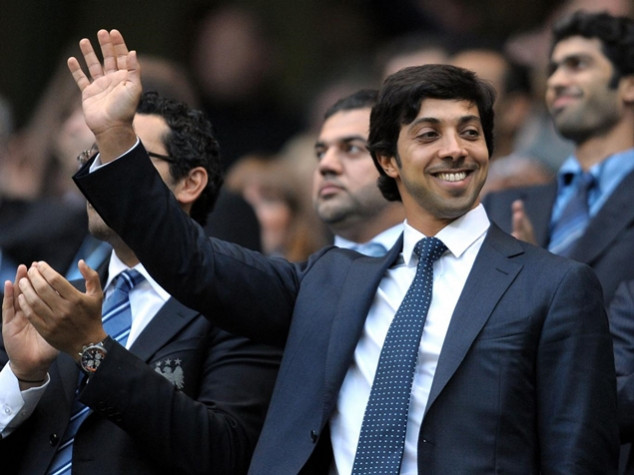
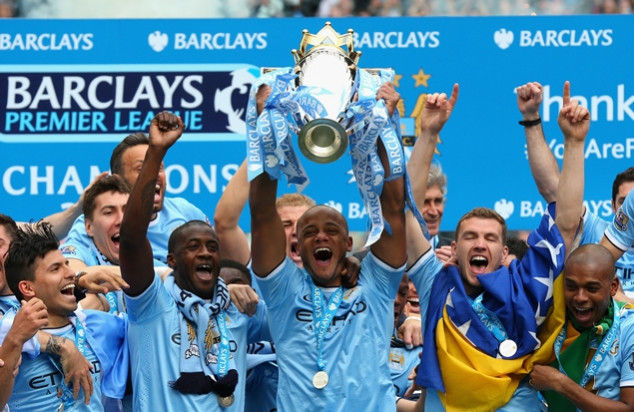
In 2011, Manchester City finally won their first title in over three decades when they clinched the FA Cup. This was followed up a season later by finally winning the Premier League for the first time since 1968, and in 2014, they became champions of England for the fourth time. Having seemingly burst onto the scene, City's success did not go unnoticed by other Premier League sides, and soon, the club were dubbed "the noisy neighbors of Manchester" by some (green-eyed) Manchester United fans not too pleased with their cross-town rivals crashing the party.
Well, for all the "noise" they created in England, they were quiet as mice in European competition. There were failed stints in the Europa League and plenty of frustration in the Champions League, with the team being unable to get past the first knockout rounds for the past few seasons.
That is, until now. Thanks to topping their quartet, Manchester City finally managed to avoid serial opponents Barcelona and received a more favorable opponent in Ukrainian outfit Dynamo Kiev. So, how much has it cost them to book their spot in the Champions League quarter-finals for the first time in their history?
If reports are to be believed, over 1 billion pounds. Yes, that's one billion, or £1,000,000,000 have been splashed out since 2008. Over £850 million alone have been spent on transfer fees. Given that Kevin De Bruyne plus Raheem Sterling combined cost an eye-popping £104 million (this breaks down to approximately £55 million for the Belgian international and £49 million for the former Liverpool attacker) last summer, this figure should not shock anyone.
PSG: The new kid on the block ready to mix it up with the old boys in Europe
Meanwhile, Manchester City's next European opponent, PSG, have a similar background story. However, they are far younger than the English side, having only been founded in 1970 in its current format after merging with Paris FC (prior to then Paris Saint-Germain was known as Stade Saint-Germain. There is also currently another Paris FC side in French football presently playing in Ligue 2).
In the 1970/1971 season, after winning the Ligue 2 title, PSG arrived in the upper tier, and won their first Ligue 1 title in 1986. This was followed by a second in 1994, but other from that, Les Parisiens' only successes were in the Coupe de France and the Coupe de la Ligue (which they won five times and two times respectively during the 1980's and 1990's). Yet, despite doing well in cup competitions, the same could not be said about their position in Ligue 1, in which they struggled even to break into the upper part of the table.
In 2011, the capital club were purchased by Qatar Sports Investments, chaired by Nasser Al-Khelaifi and they immediately set about raiding Europe's other big leagues to build the team. Serie A was a prime choice, with Javier Pastore, Ezequiel Lavezzi, Thiago Silva, Edinson Cavani, Zlatan Ibrahimovic, Thiago Motta, Marquinhos, Maxwell, Salvatore Sirigu, and Marco Verratti among those who played some of their club football in Italy.
In just five seasons, Nasser Al-Khelaifi has brought PSG from obscurity to becoming France's most prominent club - including being the first team to clinch a domestic quadruple last season

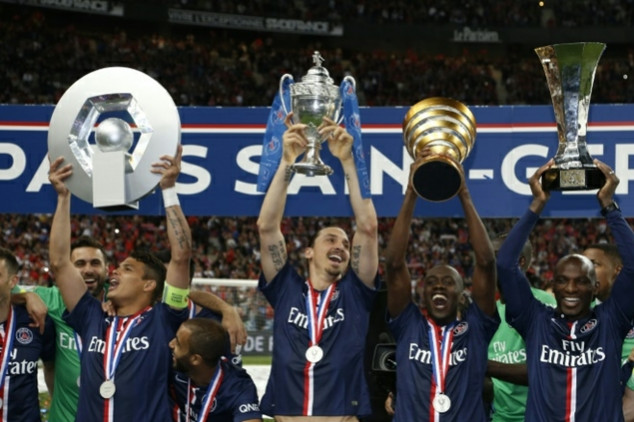
And like Manchester City, building a squad to challenge in Europe certainly did not come cheap. Signings like Angel Di Maria (about €63 million), Edinson Cavani (about €64 million), and David Luiz (about €62 million) all contributed to over a half a billion Euros spent (anywhere from €550 million and up) in just five seasons on transfers alone.
However, for all of the money spent, PSG have come up short in Europe. Over the past three seasons, they have rolled along to the Ligue 1 title, but have failed to get past the quarter-finals after being defeated by Barcelona (twice) and Chelsea (once). This time, after seeing off the Blues, they are in a position to make it to their first semi-final since 1995.
The "old guard" might not like them, but they certainly are not going anywhere...
Undoubtedly, these are some massive sums spent in a relatively short period of time. As such, both Manchester City as well as PSG are not immune to some virulent criticism, and they have been accused by other clubs (and fans) of trying to "buy" their way into Europe. Well, certainly must have irked those critics when Chelsea won the Champions League in 2012!
If one was one of those people grinding their teeth in irritation, they may want to find another way to channel their frustration. For those who can not stand the nouveau riche, both these clubs are here to stay and they are not going away any time soon. Whether they they like it not, one of these teams will be featuring in the Champions League semi-finals this season.
And with the kind of money their wealthy owners will keep on splashing out, neither PSG nor Manchester City will be looking to be a "one-hit" wonder on the continent. Hence, one better get used to seeing them at this stage in the Champions League both now and in the future as they keep on challenging Europe's "more established" sides in their own quest for continental glory.

